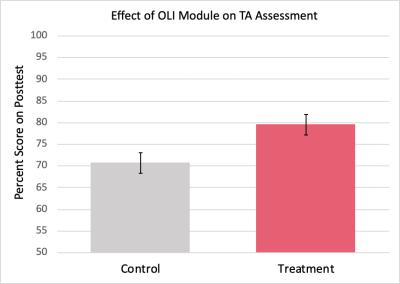Evidence-based training for grading and providing feedback on quantitative work, including problem sets, code, and written responses.
Evidence-based training for grading and providing feedback on quantitative work, including problem sets, code, and written responses.
How can you grade efficiently, effectively, and fairly? How can you simultaneously give your students feedback that will maximize their learning? These online modules will focus on evidence-based strategies for grading and providing feedback on quantitative work, such as problem sets, code, and written responses. In these modules, participants will explore the relationship between grading and feedback, strategies for grading efficiently and fairly, the characteristics of effective feedback, and research on the impacts of different types of feedback on student learning. Through practice exercises, participants will practice analyzing and improving examples of feedback on student work. Participants will also practice grading and providing feedback using rubrics.
Please email eberly-assist@andrew.cmu.edu with questions or for help with setting up your TA Training course
We conducted multiple assessments of these online modules to measure participants’ learning gains and skill development. In a pilot study with 300 Computer Science TAs, we randomly assigned half to complete the modules prior to the beginning of the semester while the other half were used as controls. All students were given pre and post assessments of their knowledge and skills related to grading and providing feedback regardless of whether or not they completed the modules. The treatment group who completed the modules showed significant increases across a wide variety of skills. We then replicated this finding with graduate students across multiple quantitative disciplines.

We then wanted to know how our online modules compare to our equivalent in-person TA training seminar, focusing on the authentic task of providing written feedback on student work. We compared scores from the in-person seminar participants to those of students who completed the same assessment task associated with the online modules. We found that learning gains were consistent across both online and in person formats.
Hershock, C., Melville, M. C., Stimson, J., & Dwyer, H. (2022). How effective is asynchronous, online training for graduate and undergraduate student instructors? Journal of Applied Research in Higher Education, (ahead-of-print).
OLI system requirements, regardless of course:
Some courses include exercises with exceptions to these requirements, such as technology that cannot be used on mobile devices.
This course’s system requirements:
Instructors who teach with OLI courses benefit from a suite of free tools, technologies, and pedagogical approaches. Together they equip teachers with insights into real-time student learning states; they provide more effective instruction in less time; and they’ve been proven to boost student success.